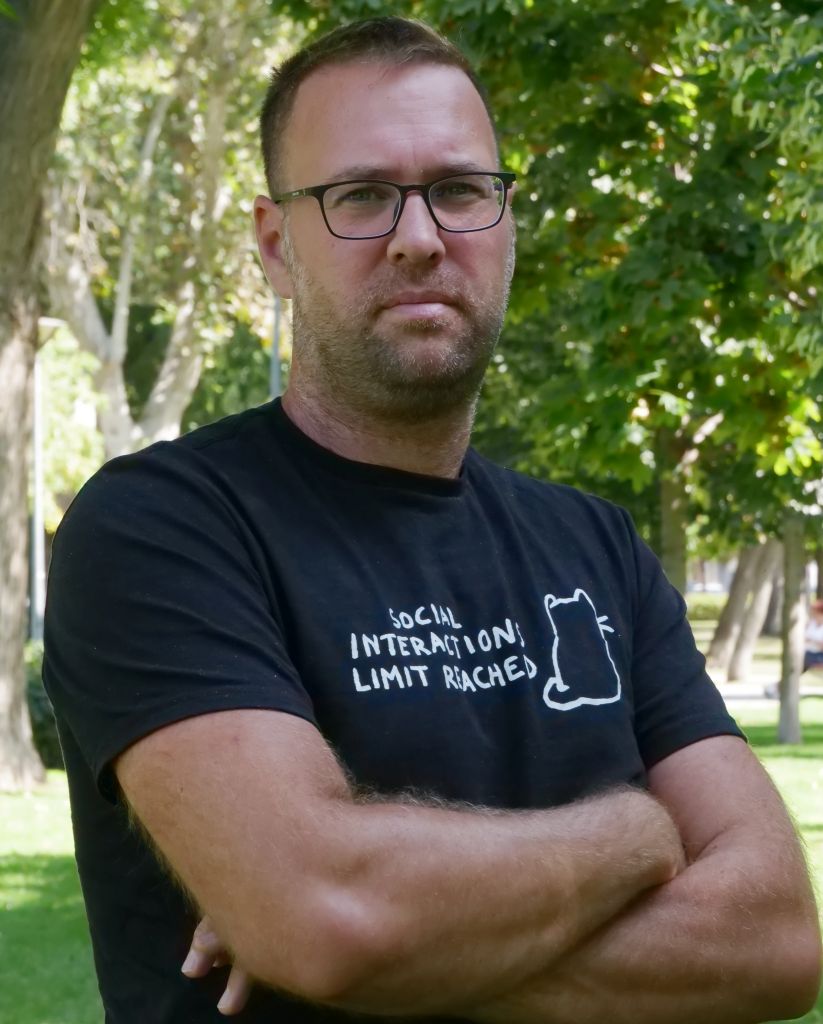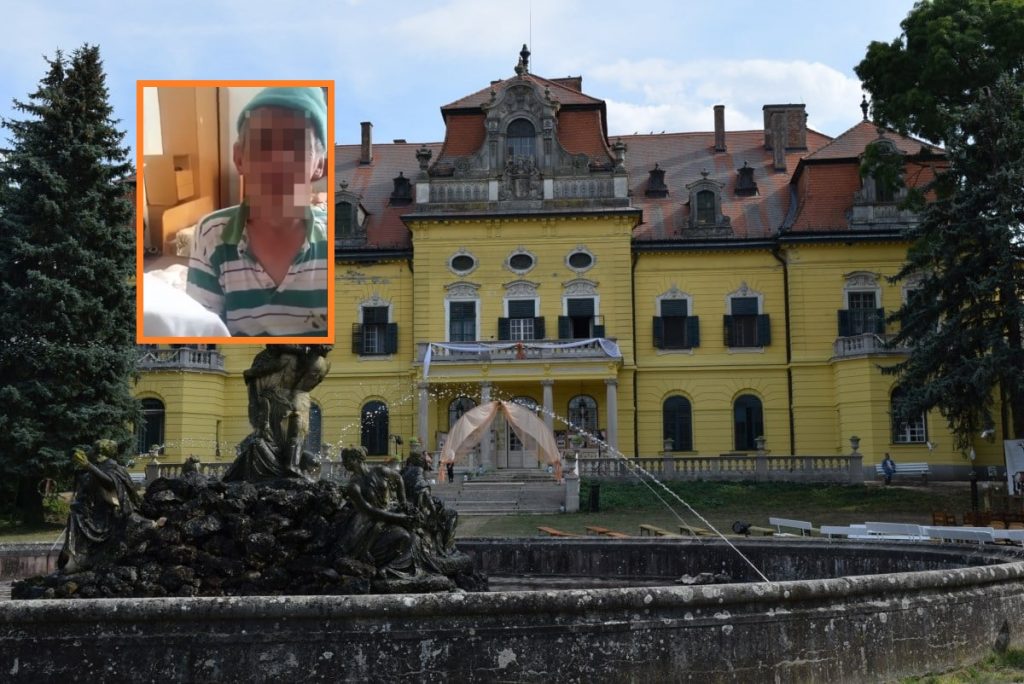The https://english.atlatszo.hu use cookies to track and profile customers such as action tags and pixel tracking on our website to assist our marketing. On our website we use technical, analytical, marketing and preference cookies. These are necessary for our site to work properly and to give us inforamation about how our site is used. See Cookies Policy
Disabled patients were humiliated in a nursing home in Hungary, police also investigate sexual abuse
Several videos of caregivers humiliating patients at the nursing home in Nagymágocs were obtained by Átlátszó. Police are investigating multiple cases. We also received information that a carer may have sexually abused men, women, and elderly people. The institution did not respond to our questions, and the Directorate General for Social Affairs and Child Protection, which runs the centre, only reacted to the videos.
A man is slapped, but you can’t understand from the video what is his reaction. He gets another slap. The video of the visibly disturbed man was recorded at the nursing home in Nagymágocs, a village in southern Hungary. And not just one.

Atlatszo also received footage where the caregiver throws a ball at the patient’s head.
“Tell me, what’s in that picture?” – that’s another video. The caregiver is holding what looks like a pillowcase. The patient is also visibly confused, his speech is not clear. The cameraman asks several times what it is, the answer is unintelligible, but they laugh – not the patient, but the nurses. “Give it a kiss. Kiss the shit” – the man encourages the patient, while filming everything.
Another video shows the same person, but now in the yard. The man holding the camera encourages him to shout. What he is shouting is not clear. The carer then dictates what to say, the patient repeats, while the man making the video chuckles.
Humiliated patients, suspected sexual abuse
Both recordings were made in a nursing home, and the videos were sent to Átlátszó, accompanied by a letter. We wrote about the Cseresznyeliget Otthon in Csongrád-Csanád County last November, when residents complained of bedbugs. The institution is located in Nagymágocs, a village of nearly 3,000 inhabitants. The state-run home is housed in a former Károlyi manor house, built in the 19th century in neo-Baroque style, and a home for people who need help because of their medical condition.
The problem with the institution is not new. A video of the humiliation of a man sitting on a bed was leaked to the human rights NGO Hungarian Civil Liberties Union (HCLU, in Hungarian TASZ) last year. At the time, the rights organisation published a report on 444.hu, but did not name the place. It was described as.
- In 2021, they obtained some videos of a mentally disabled man being abused in a public institution in the southern part of the country.
- In response to their action, the abusive employee was immediately fired and a complaint was filed against him.
- Even though a lawyer was recommended to the victim’s legal representative, the Public Guardianship Office prevented the vulnerable man from getting any meaningful help.
It seems that the problem has not been solved since then: in addition to the abuse at the time, another video of the atrocity was made and then “leaked” – this time to Átlátszó. But it was not only the humiliation on video that we received information about.
„One of the carers worked in a residential home called Supported Housing. This home is also part of the castle home, of which Mrs Katalin Fodor Drubinán is the director. The carer could sexually abuse psychiatric patients, men and women mixed.
He touched men’s genitals, forced women to perform sexual acts, including elderly women.
The Szentes Police Station was alarmed by relatives and a professional caretaker,” they wrote to us. Another caretaker „beat the mildly and moderately mentally handicapped patients at the nursing home in Derekegyháza. A video was also made of this. But the workers have been summoned and made to sign a confidentiality agreement and are not allowed to comment to any media,” they added. They also hinted at family links between the head of the institution and the staff.
The insitution won’t say what they are doing to avoid similar incidents, the police are investigating
We contacted the institution about the videos and the sexual harassment, describing the exact content of the videos, the information we received and asking them about the incidents. We received no answer from the institution, however, its maintainer replied.
The Directorate-General for Social Affairs and Child Protection wrote: „As one of the addressees of your letter, the Directorate-General for Social Affairs and Child Protection informs you that the institution is aware of both cases. As soon as the head of the institution became aware of the events, she immediately filed a complaint with the competent police station, in parallel with the measures taken by the employer.
Following both denunciations, the competent authority ordered an investigation.”
The press department of the Csongrád-Csanád Vármegyei Police Headquarters wrote about the sexual harassment that “The Szentes Police Headquarters initiated proceedings in December 2021 on suspicion of a misdemeanour of indecent assault against an unknown perpetrator. The case is still ongoing”. The video, which was also sent to TASZ, said that “the Csongrád-Csanád County Police Headquarters is currently investigating the case for the crime of assault committed against a person in the course of public duties”.
Human rights NGO says the problem is recurring
People with disabilities living in institutions are particularly vulnerable to mistreatment. Abuse can be active, physical, sexual, emotional, but many people forget that neglect is also a form of abuse. People living in social institutions are victims of systemic neglect, Kristóf Környei told Átlátszó.
The HCLU staff member recalled that numerous ombudsman reports point to living conditions that violate human dignity and inadequate material and personal conditions.
He says that although there is an internal complaints mechanism, it is often ineffective. „Because residents can report their problems primarily to those who are at the mercy of their daily lives, on whom they depend for their basic living conditions, or who are not supported to complain, the latency of violations in institutions is high.”
Translated by Zita Szopkó. The original, more detailed Hungarian version of this article was written by Csaba Segesvári and can be found here.



